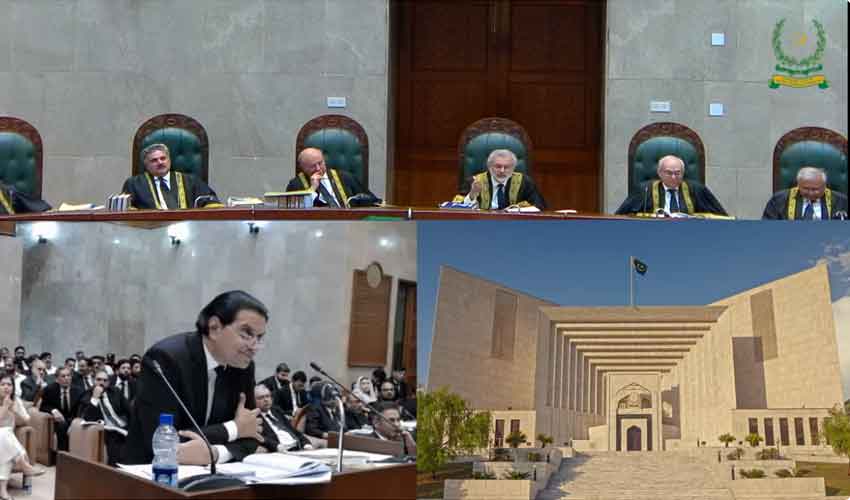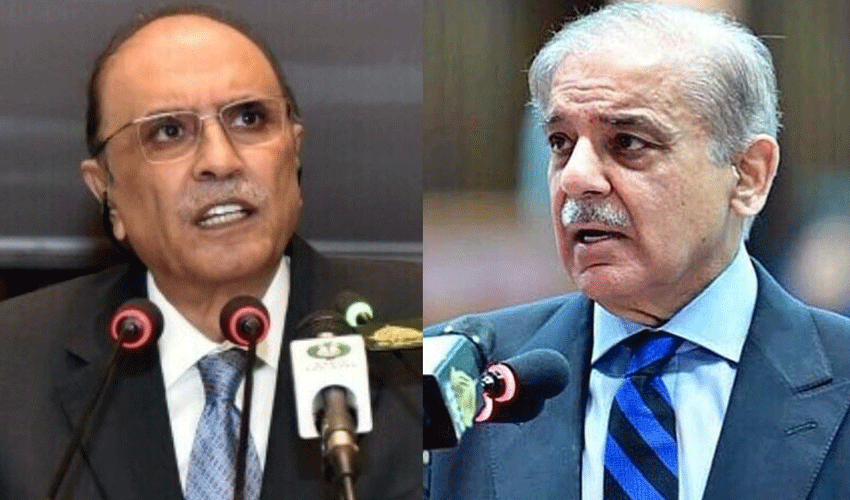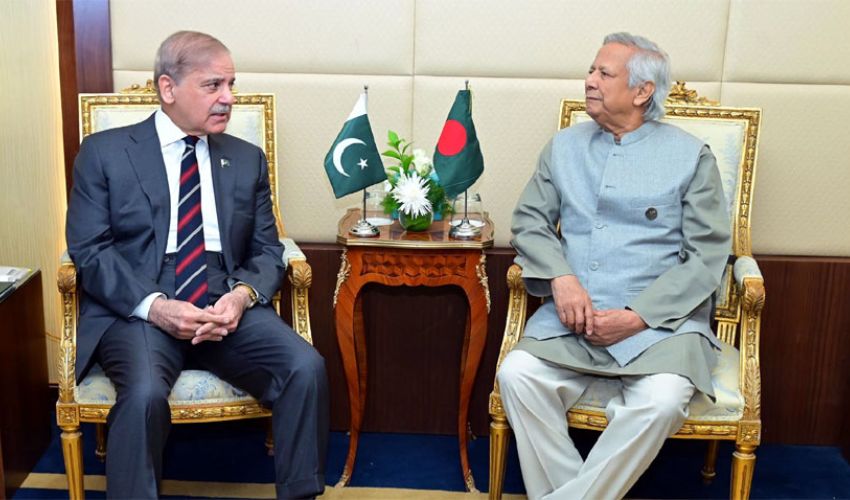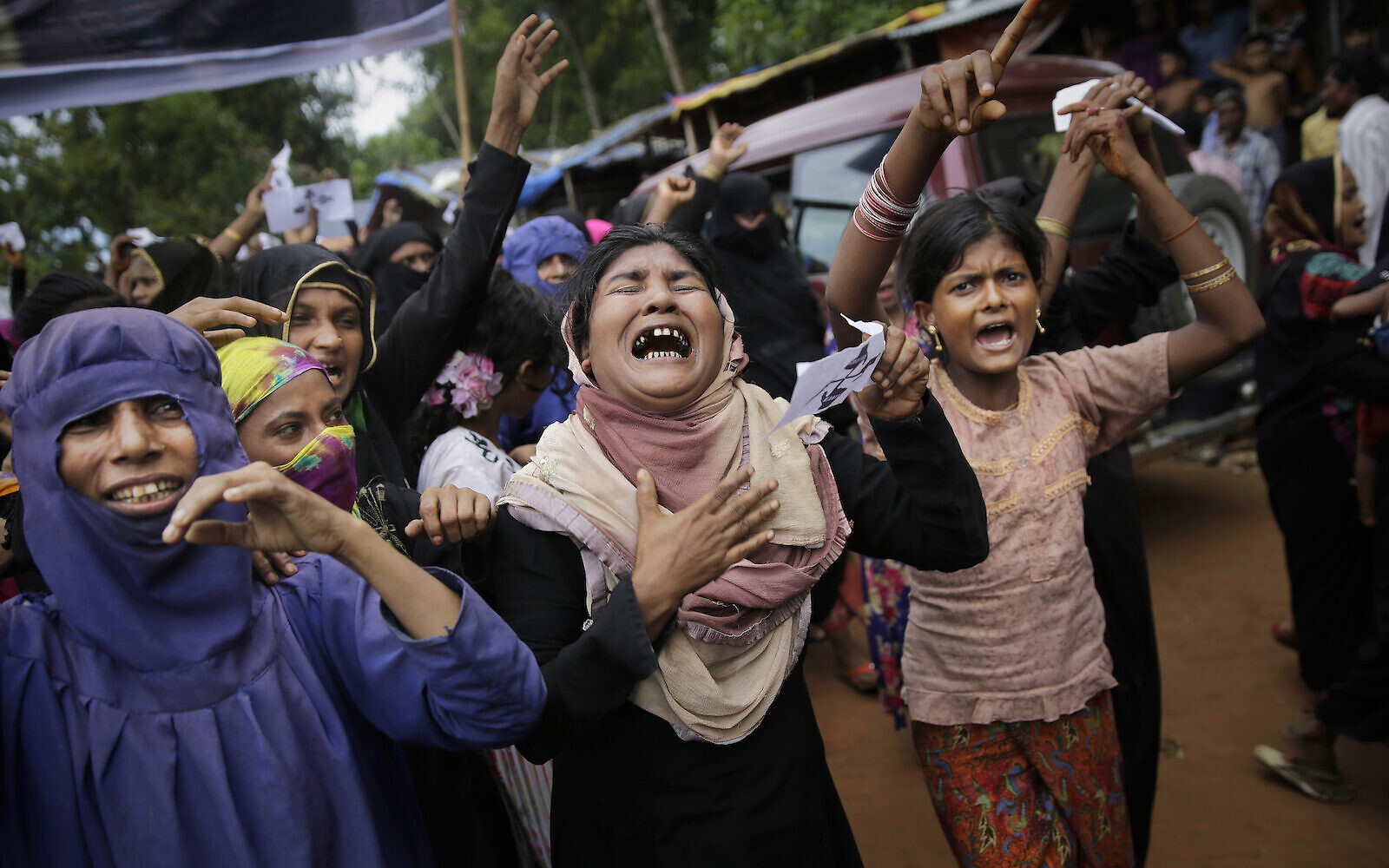In the hearing of the case related to the reserved seats of the Sunni Ittehad Council (SIC) in the Supreme Court, the court asked that whether the party wins or loses its case, how will other parties benefit from it? Reserved seats cannot be given against the principle of proportional representation.
A 13-member full court of the Supreme Court, headed by Chief Justice of Pakistan Qazi Faez Isa, heard the case related to the reserved seats of the Sunni Ittehad Council. Faisal Siddiqui, the party's lawyer, argued that the chairman was shown associated with the SIC in the nomination papers, but he contested elections as an independent candidate after not getting the party's election symbol.
CJP Isa told the lawyer not to speak randomly without any documents. Upon this, Faisal Siddiqui said he would present the documents and the election commission will confirm as well.
During the hearing, Justice Muneeb Akhtar asked lawyer Siddiqui whether the party ticket was submitted along with the nomination papers. The lawyer said that SIC Chairman Hamid Raza was being prevented from submitting the party certificate and the election commission forcibly allotted the symbol of an independent candidate.
The election commission presented the nomination papers of Hamid Raza, on which the chief justice directed to prepare copies of the documents and give to all the judges.
Makhdoom Ali Khan, the lawyer of the elected members on reserved seats, said in his arguments that the election program was issued under the Elections Act, adding that it is necessary to submit the nomination papers before the announced date. "The election commission will confirm that the SIC did not submit the list related to the reserved seats," he added.
Justice Mansoor asked Makhdoom Ali Khan when the notification to recognize the Sunni Ittehad Council as a parliamentary party was issued. The lawyer said the election commission could give a better reply to this question.
During the hearing, CJP Isa remarked that it was surprising that Salman Akram Raja and Faisal Siddiqui did not talk about the Peshawar High Court and only mentioned the decision of the election commission.
During the hearing, the judges raised questions on the election commission's declaration of PTI candidates as independent.
Justice Muneeb asked how the election commission declared as independent candidates those who mentioned PTI in their nomination papers. "How did the election commission conclude that the candidates are independent and not from PTI?" he asked.
Justice Mansoor Ali Shah remarked that the important question is that on what basis the election commission declared the candidates of the political party as independent? Justice Hasan Azhar asked if a candidate said after submitting nomination papers that he was withdrawing.
Justice Athar Minallah remarked that the ECP decided about the independent status of the candidates after which the independent candidates had no choice. The main dispute is the election commission's refusal to accept the nomination papers of the candidates and declare them independent.
"If Hamid Raza turns out to be a candidate of the Sunni Ittehad Council, then it will be a different matter," he added.
Justice Jamal Mandokhel remarked that if someone submits the certificate of a certain party, it cannot be changed later, adding that if someone joins another party after submitting the ticket of another party, it would be considered defection.
"This situation will warrant application of Article 63A," he added.
Justice Ayesha asked if the Sunni Ittehad Council wins or loses its case, how will other parties benefit from it? Reserved seats cannot be given away against the principle of proportional representation. She asked what the position was of those taking additional seats. "Explain the formula of proportional representation already enshrined in the Constitution," she remarked.
The chief justice said that the Constitution was sacred and it was necessary to follow it, not an option. "If you want to talk about history, do it completely," he remarked.
On the CJP's remarks, Justice Minallah said that even today the Constitution was not being implemented, adding that the impression should not be given that the court was a part of all this and had buried its head in the sand.
"Everyone is trying to give the impression that we are talking about the past. One day we should say that enough is enough. We cannot close our eyes to the violation of the Constitution. The most important petition in the Supreme Court is about the February 8 elections. The cases of missing persons and violations of fundamental rights are not political cases," Justice Minallah said.
On this, the chief justice said, "We should all admit to our mistakes."
During the hearing, Justice Mansoor questioned if it was possible that there are two candidates of one party from the same constituency, even as covering candidates?
Lawyer Sikandar Bashir said it was not possible, adding that a party leader allotted tickets according to the party's constitution, Justice Muneeb Akhtar asked if he meant the Supreme Court excluded the PTI from the elections by revoking its election symbol of bat. The lawyer replied in the negative.
CJP Isa remarked that if intra-party elections are not held today, they can be held tomorrow. "I was surprised that the PTI is not conducting intra-party elections. Thousands of cases are pending, we cannot hear just one case."
During the hearing, lawyer Makhdoom Ali Khan said that if there were two political parties, reserved seats will be distributed to them. On this, Justice Ayesha Malik said the election result can be easily changed through reserved seats. Justice Jamal Mandokhel remarked that the method of allocation of reserved seats changes in every election.


























